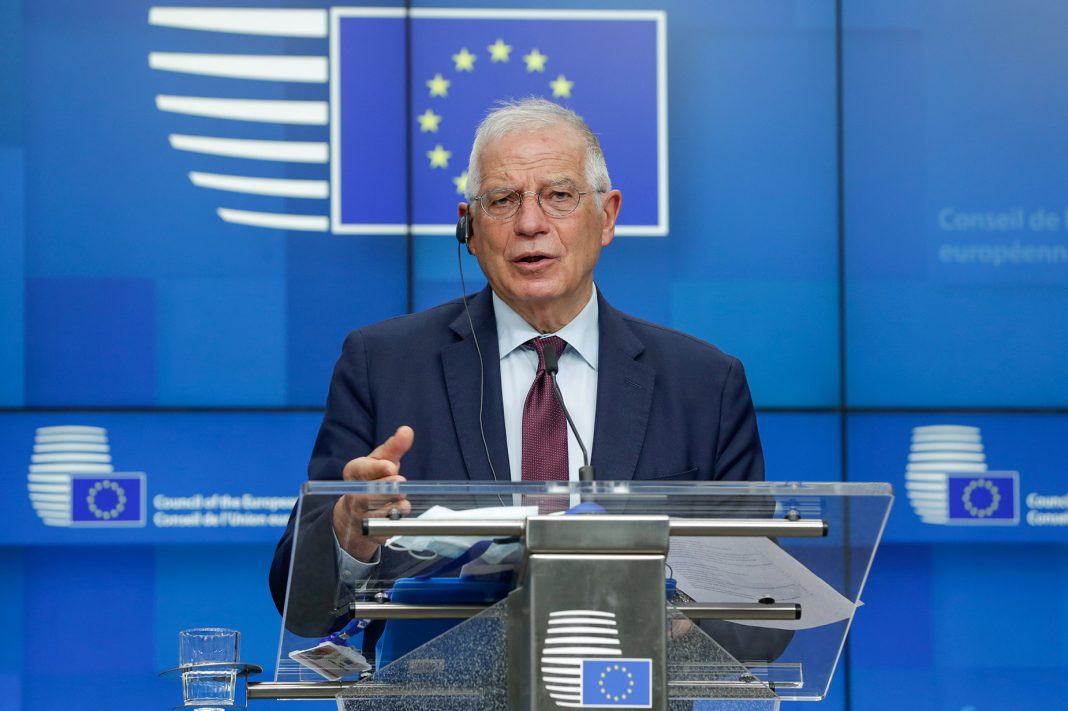The European Union deeply regrets the decision of the US Administration to end the three sanctions waivers covering important Iran nuclear deal projects, including the convertion of the heavy-water reactor at Arak.

The US State Department announced on May 27 that Washington would begin imposing economic penalties on foreign businesses, including companies from Europe, Russia and China, working at Iranian nuclear facilities as the businesses were previously allowed under the 2015 deal between Iran and world powers.
“We deeply regret the US decision to end the three sanctions waivers covering key JCPOA nuclear projects in Iran, including the Arak Modernisation Project,” Stano said. Work with Iran on key nuclear projects allow us to ensure that facilities like Arak can never be used for non-peaceful purposes. The US decision will now make it more difficult for the international community to ensure the exclusively peaceful nature of Iran’s nuclear programme,” the EU spokesman said.
Stano reminded that EU High Representative for Foreign Affairs and Security Policy and Commission Vice-President Josep Borrell plays a specific role as coordinator of JCPOA. “We are in touch with all remaining participants and relevant partners on the next steps,” Stano said.
In his opening remarks to the UN Security Council on May 28, Borrell reiterated the enduring importance of the Joint Comprehensive Plan of Action – the so-called JCPOA – with Iran. “As you know, I am the Coordinator of the Joint Commission and I am determined to do everything to ensure full and effective implementation and, in particular, Iran’s return to full compliance,” he said. “The agreement remains essential to ensure the peaceful nature of the Iranian nuclear programme. This is why I have to regret yesterday’s decision by the United States not to prolong the waivers for the JCPOA-related nuclear projects,” Borrell said.
Gulf State Analytics CEO Giorgio Cafiero told New Europe by phone on May 28 from Washington DC that the US decision not to extend a waiver on sanctions that permitted the companies to work at the nuclear reactors was spearheaded by US Secretary of State Mike Pompeo and the State Department’s special representative for Iran policy, Brian H. Hook. “I think that it’s important to see this within the context of US domestic politics as well as the overall state of the US-Iran relations. I my opinion one of the objectives that Pompeo and Hook have is to basically institutionalise the maximum pressure and to undermine the potential for a possible (US presidential candidate Joe) Biden administration to try to return to a more diplomatic approach to Iran,” Cafiero said, arguing that between now and November the Administration of US President Donald J. Trump will not do anything to ease the maximum pressure on Tehran.
“It’s also that here in the United the government has had a botched and disastrous response to coronavirus and I think the President would definitely would like to change the topic and create different kinds of headlines so that’s an important context to keep in mind,” Cafiero opined.
The CEO of the Washington DC-based geopolitical risk consultancy said the latest decision of the US Administration regarding Iran “is going to be another development that just adds more friction to the Washington-Brussels relationship when it comes to the Iran file”.
Cafiero said that it probably push Iran closer to Russia, China and Europe at this point. “That’s just a new reality where Iran has even less reason to think there is any sort of hope for some kind of diplomatic progress in terms of its relations with the US administration,” he said.
Turning to the Persian Gulf countries, Cafiero said countries like Qatar and the United Arab Emirates are really on the front lines of this standoff between the US and Iran. “Qatar obviously has its own unique national interests and its own unique perspectives on Iran. Obviously, the blockade that begun almost three years ago forced Qatar to turn to Iran more than Doha ever did before just in terms of food security, air space and so on,” he said, adding that the maximum pressure campaign has left Doha in a very difficult and sensitive position.
“Although the Qataris are very keen to avoid criticising Trump, I have no doubt that they would like to probably see a new administration or see the Trump Administration ease the maximum pressure because what Qatar doesn’t want I have to pick between the US, which is its security guarantor, and Iran, which is an important neighbour,” Cafiero said. Adding, “But as the screws tighten it’s becoming increasingly difficult for the Qataris to maintain this delicate balance”.